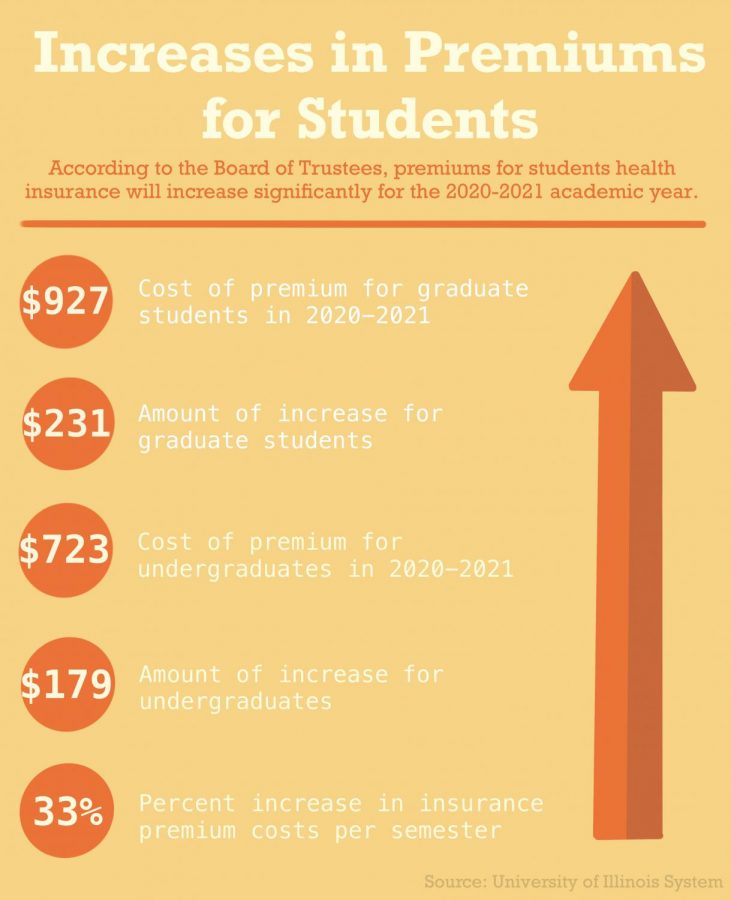University raises student insurance premiums
April 3, 2020
On March 12, the University Board of Trustees approved an increase in insurance premiums for students enrolled in the University healthcare plan. The new premiums will be $723 per semester for undergraduates and $927 per semester for graduate students.
This marks a 33% increase in premiums for University students compared to the 2019-2020 school year. According to a release from the Board of Trustees, several factors contributed to this increase, such as increasing insurance claim costs and a lower level of enrollment as healthy students opt out of the insurance program.
“The student health insurance plan’s participation rate has fallen due to undergraduates choosing to remain on their parents’ plans,” said Tom Hardy, executive director of University relations for the UI system.
Premiums at the Chicago campus also increased by 3.5% to cover the cost of increasing access to a new long-acting reversible contraceptive. The new premium costs at the University are still less expensive than premiums at seven of the 13 other schools in the Big Ten.
“The level of care at McKinley and the quality of our health insurance already aren’t worth what we’re paying,” said Danny Bergquist, a sophomore in Engineering. “It would be justified if they greatly increased the coverage and care that we get. A lot of people who pay out of pocket and a lot of people who rely on loans plan for a certain amount of expenses every semester, and having them increase is going to be very difficult for people.”
Get The Daily Illini in your inbox!
The Graduate Employees’ Organization at the University opposes the increase in premiums.
“The GEO finds this premium fee increase to be severely harmful to graduate and undergraduate students as well as wholly ignorant of our living and working conditions in the face of the COVID-19 pandemic,” said Cassidy Wagner, communications co-chair of the GEO.
The GEO has been engaged in efforts to reverse the decision. This includes the Healthcare Premium Call Out on March 23. The Call Out involved calling and emailing the administration to express opposition to the rising costs. The demands of the GEO include the reversal of the premium increase and the extension of subsidized health insurance to all graduate and undergraduate students through the summer.
“We feel that the Call Out was successful in organizing graduate employees to make their voices heard,” Wagner said.
The current COVID-19 outbreak also presents a concern about the rising premium cost.
“(Students) shouldn’t have to pay deductibles,” said Bergquist. “We shouldn’t have to pay extra in order to use the insurance that we already pay for. It incentivizes people not to get help when they get sick, which causes their condition to get worse and in many cases causes them to spread their condition with others.”







